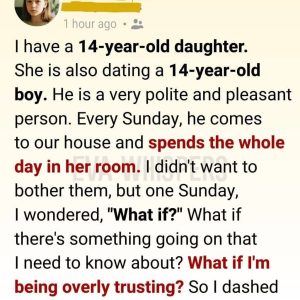After 14 years of marriage and four children, Peter ended it all with a single text. No conversation. No explanation. Just a few cruel words: “You’re too tired. Too boring. Too much.” And then he vanished—off to start a shiny new life with a carefree colleague half his age. I found out about it the same way everyone else did: through carefully filtered Instagram posts of beach trips, brunch dates, and smug smiles. While he played house with someone new, I was left to hold our real home together—alone.
I nursed broken hearts, dried our kids’ tears, balanced bills on a thread, and stayed up late helping with homework while trying to hide my own heartbreak. Every day felt like a storm I had to survive. But over time, something shifted. I didn’t just survive—I rebuilt. I found strength in the chaos, a quiet power in choosing to rise. I went back to school. Got a better job. Paid off debt. I laughed again. I felt like me again—someone Peter had clearly forgotten existed.
Then one evening, months after I’d stopped thinking of him at all, there he was—standing on my doorstep with a cheap bouquet and that familiar sheepish grin. “I made a mistake,” he said. “I want to come home.” I didn’t yell. Didn’t cry. I simply stepped aside and let him talk. He rambled about nostalgia, about missing the kids, about realizing what he’d lost. When he finished, I handed him a folder—neatly organized with receipts,
overdue child support, and legal documents detailing every obligation he’d abandoned. “You thought you could just walk back into the life you walked out on,” I said. “But I’m not the same woman you left behind. I’m stronger now. Wiser. And no longer waiting.” He stood there, stunned. I closed the door gently but firmly. As I turned, I glanced down at the bouquet he’d left on the counter—already wilting. Without a second thought, I tossed it in the compost bin. Right where it belonged.





